Donald Trump helped release drug prisoners. Now he wants to execute them
After helping release people convicted of drug crimes, Trump now wants the death penalty for those same offences. Experts and the people given reprieve by the former president warn Josh Marcus and Alex Woodward against the dangers of his rhetoric

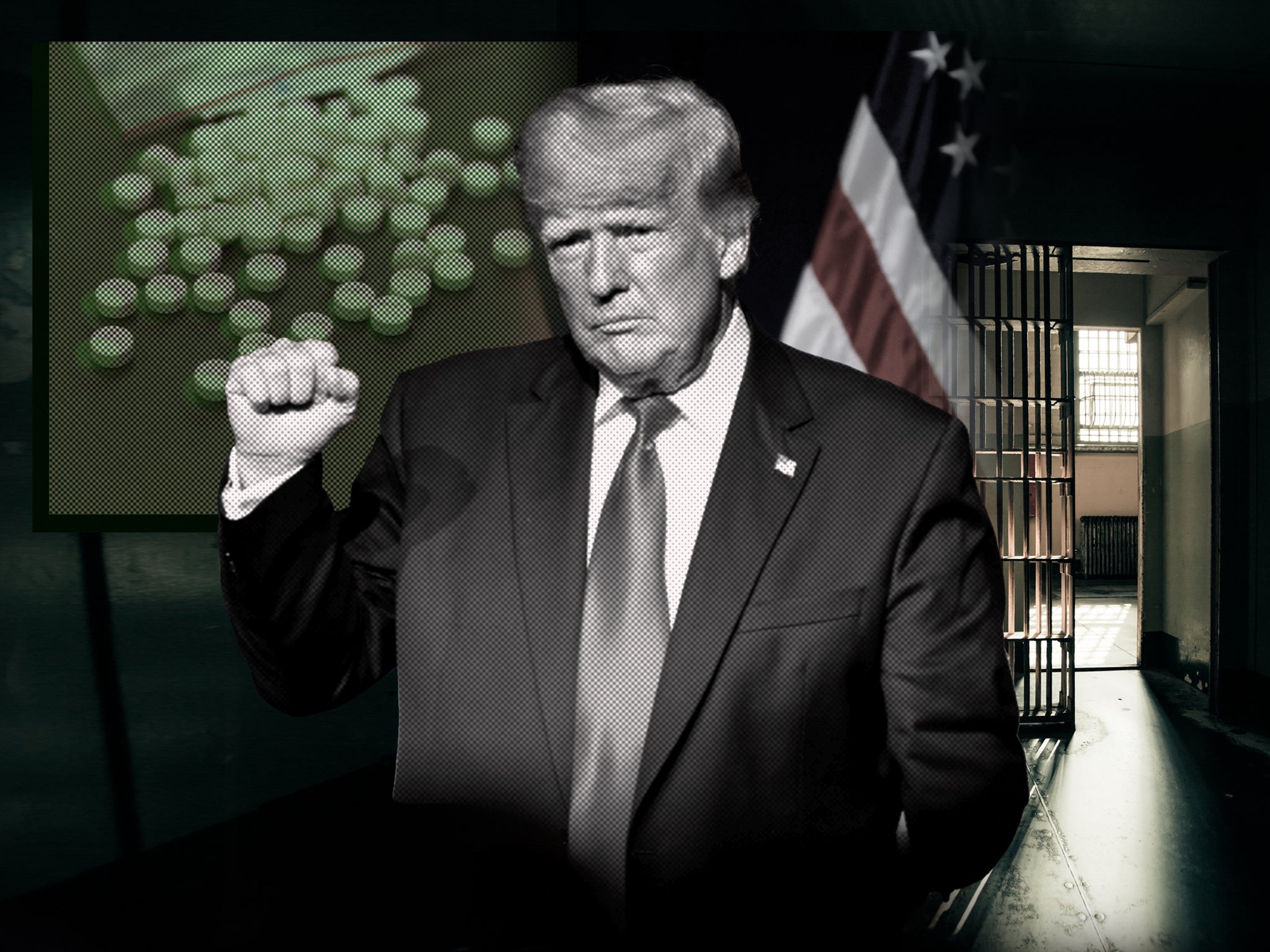
Donald Trump changed Tanesha Bannister’s life.
In 2004, Ms Bannister, then a 28-year-old single mother, was sentenced to life in prison for selling drugs. She was one of the many predominantly Black Americans given the then-100 times more stringent punishment for selling crack as opposed to powder cocaine.
A troubled family history and a lack of opportunities led Ms Bannister to start selling drugs when she was just 16.
“I was exposed to drug use,” Ms Bannister, now a business owner and criminal justice reform advocate in South Carolina, told The Independent. “I felt like it was a better way for me to provide for myself and my family was to get into the drug game. That’s how it all started.”
After she served 14 years in prison, then-president Trump signed the bipartisan First Step Act, which shortened some federal prison sentences, gave judges alternatives to mandatory minimum penalties, and retroactively applied 2010’s Fair Sentencing Act to eliminate the racial disparities in cocaine sentencing. The act freed thousands from prison.
But during his time in the White House, and during his presumptive 2024 campaign, Mr Trump has called for executing people who are charged with drug crimes, the same people he invested his political capital in freeing.
Ms Bannister, in that sense, was one of the lucky ones. Had she stayed in prison a few more years, through a few more cycles in the mercurial mind of Mr Trump, her fate could have been very different.
Through a combination of appeals, changes in sentencing laws, and Ms Bannister’s clear commitment to rehabilitation – she became an avid student on the inside and taught fitness classes – a judge ruled she should be released immediately. Her life could get back on track and she could begin connecting more deeply with her family. While she was in prison, she became a grandmother, and her son was shot and paralysed.
In October 2019, she appeared with the president at an event at Benedict College, a historically Black school in Columbia, South Carolina, where Mr Trump praised the First Step Act as a sign of what happens when “we put the interests of our citizens before the interest of any political party.” He told the crowd, with a big smile, he would support Ms Bannister in whatever she did.
“When is she running for office, please?” Mr Trump said. “I want to back her.”
That same year, Mr Trump spoke favourably of China’s policy of capital punishment for drug traffickers.
And in recent campaign rallies, he has directly called on members of Congress to approve the death penalty for the same crimes in the US.
“Under Democrat (sic) control the streets of our great cities are drenched in the blood of innocent victims,” Mr Trump said at a rally this month in Pennsylvania.
“We would solve that problem so fast” he added. “I’m calling on Republicans and Democrats immediately to institute – to get to Washington and institute the death penalty for drug dealers. You will no longer have a problem.”
The ‘hysterical’ politics of executions
In 1992, Amy Povah was sentenced to 24 years in federal prison after she was convicted of conspiracy charges tied to her then-husband’s ecstasy manufacturing scheme, despite her co-defendants submitting testimony that she had nothing to do with the drug trade.
Her sentence was commuted by then-President Bill Clinton in 2000, and her organisation Clemency for All Nonviolent Drug Offenders Foundation (CAN-DO) has helped secure the release of more than 100 people facing severe sentences in federal prison. In 2021, then-President Trump granted her a full pardon, following commutations for dozens of other people incarcerated for drug offences, the majority of which involved “conspiracy” charges with severe mandatory minimum sentences.
While in office, Mr Trump issued pardons for 17 people for drug-related offences, including Ms Povah.
He also commuted prison sentences for more than 60 people incarcerated for drug-related crimes, including two people whose sentences were twice commuted by the former president within a year, and 54 people whose sentences were commuted within a single day on 19 January, 2021, his final day in office.
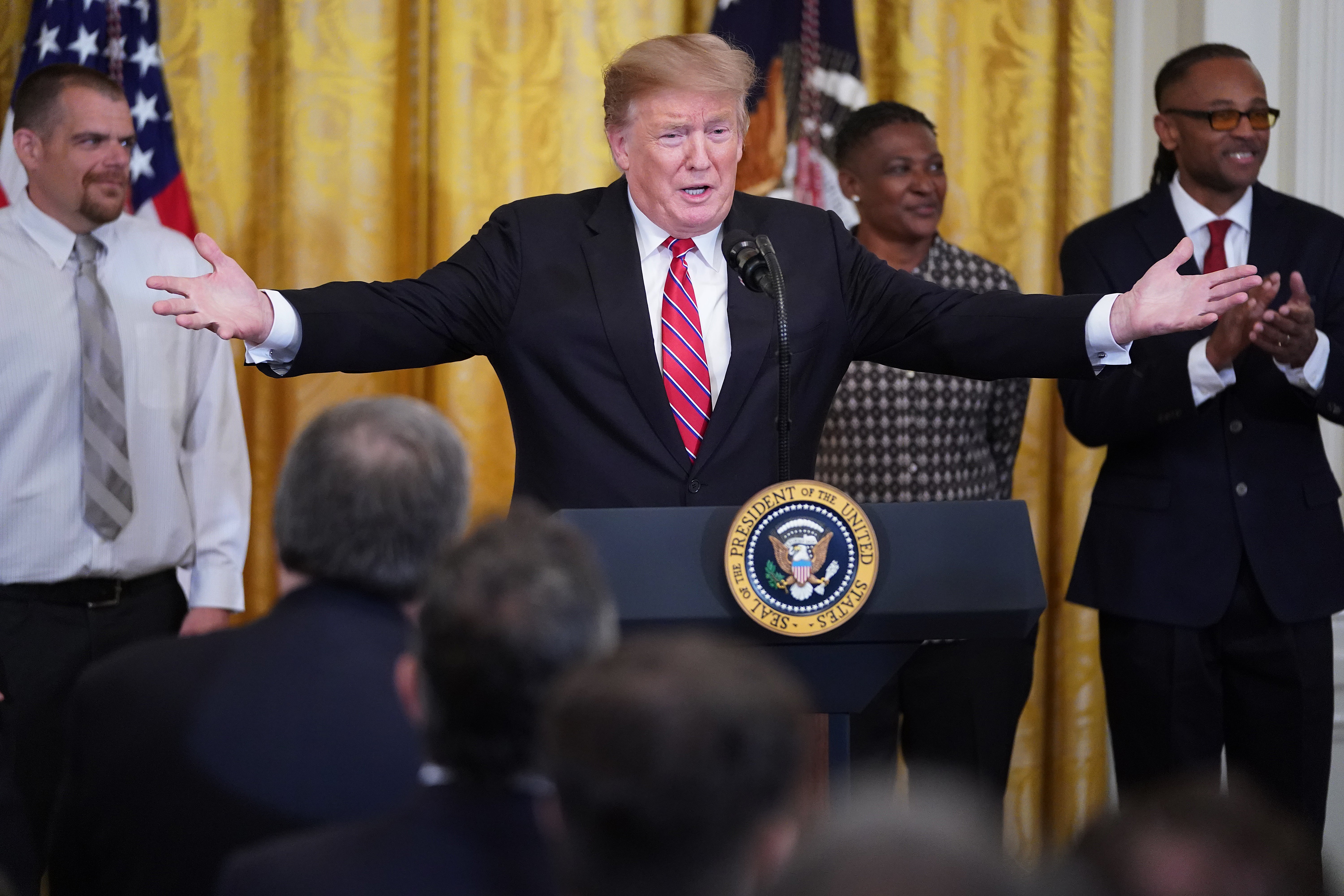
Such pardons did not stop Mr Trump from praising executions for drug crimes and ramping up the federal execution machine.
On 20 March, 2018, then-Attorney General Jeff Sessions issued a memo to all US Attorneys to consider “every lawful tool” to combat the overdose crisis – and “strongly” encouraged prosecutors to seek the death penalty for people caught “dealing in extremely large quantities of drugs.”
The president went even further, saying killing drug dealers could be necessary, even if it was unpopular with Americans.
“When I was in China and other places, by the way, I said, ‘Mr President, do you have a drug problem?’ ‘No, no, no, we do not.’ … I said, ‘what do you attribute that to?’ ‘Well, the death penalty,’” he said at a rally in Moon Township, Pennsylvania, in 2018. “I don’t know that the United States, frankly, is ready for it.”
That same year, he spoke favourably of executions in Singapore – “these guys don’t play games” – where more than a dozen people were hanged for drug offences over the last decade, facing intense scrutiny from international human rights advocates.
“I don’t think we should play games now,” Mr Trump said. “I don’t know if that’s unpopular, probably you’ll have some people that say, ‘Oh, that’s, not nice, but – but these people are killing our kids and they’re killing our families and we have to do something.”

Sitting with members of his cabinet inside the White House on 2 January, 2019, he said China’s President Xi Jinping agreed to “criminalise” the synthetic opioid fentanyl in the country “at the highest level, which means, I assume, the death penalty.”
A few weeks later, on 15 February, once again lauded China’s policy of executing drug offenders.
“What do we do? We set up blue ribbon committees. Lovely men and women – they sit around a table, they have lunch, they eat, they dine, and they waste a lot of time,” he said. “So if we want to get smart, we can get smart. You can end the drug problem.”
It’s a theme that has continued as Mr Trump continues to rally around a potential 2024 run.
“The penalties should be very, very severe,” he said in July during his first public remarks from Washington DC after his departure from the White House. “If you look at countries throughout the world, the ones that don’t have a drug problem are ones that institute a very quick trial death penalty sentence for drug dealers.”
His remarks follow his open admiration for strongmen like the Philippines’ Rodrigo Duterte and Russia’s Vladimir Putin, and long-running public advocacy for capital punishment.
When five Black and Latino teenagers were wrongly convicted of the rape of a jogger in New York City’s Central Park in 1989, he bought a full-page statement in The New York Daily News on 1 May, 1989, titled “BRING BACK THE DEATH PENALTY. BRING BACK OUR POLICE!”
“I want to hate these murderers and I always will,” he wrote in 1989. “I am not looking to psychoanalyze or understand them, I am looking to punish them.”
He has since refused to recant or apologise for the statement. Their convictions were vacated in 2002, and the city paid $41m in 2014 to settle a civil rights lawsuit.
The Independent has requested comment from a spokesperson for Mr Trump.
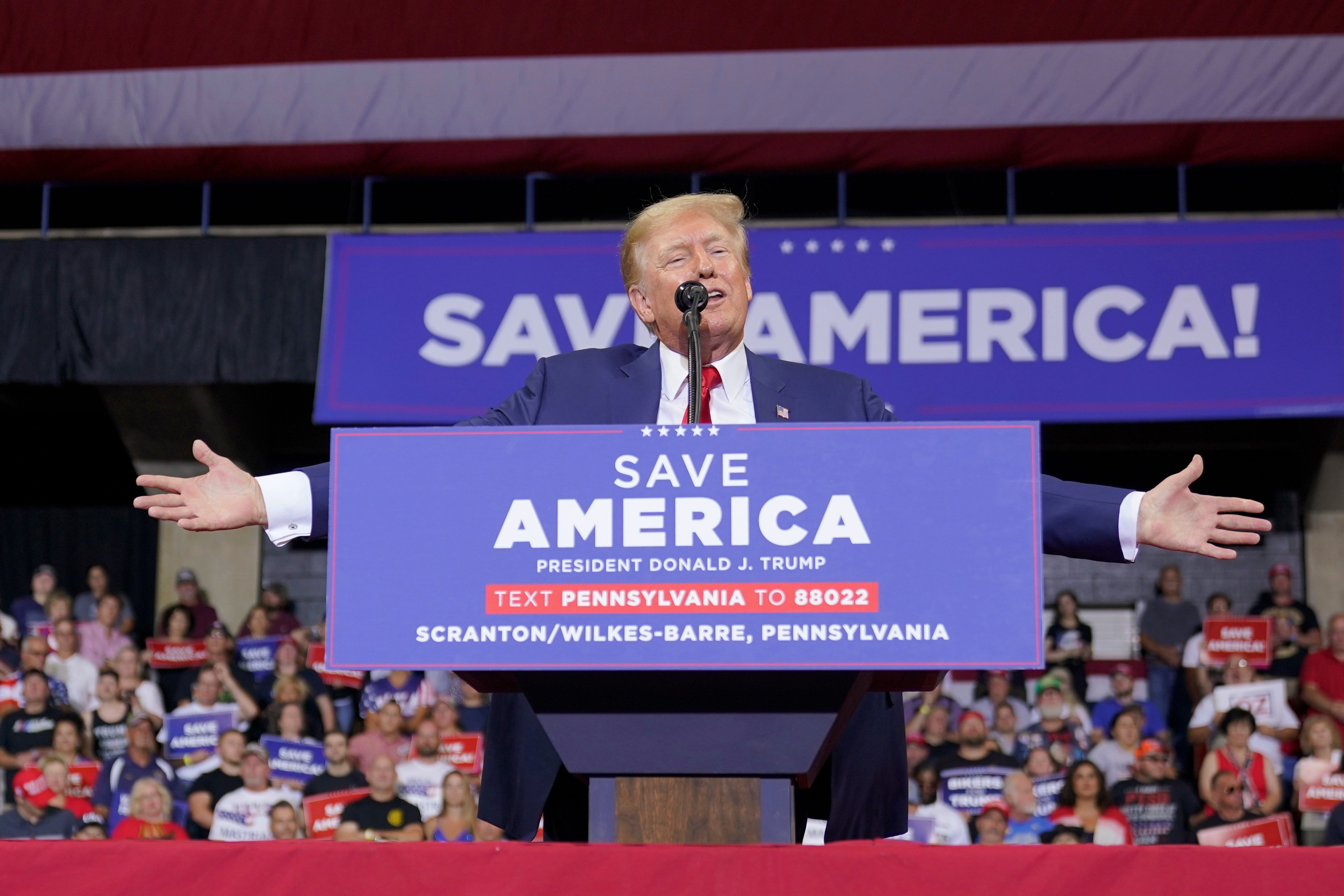
Even as polls suggest support for the death penalty has plummeted in recent decades, owing to the growing evidence that the punishment is racist and often carried out in error, Mr Trump doubled down on lauding the death penalty and using it with unprecedented frequency.
During his four-year term in office, Mr Trump’s US Department of Justice executed 13 people, the most under any president in more than 120 years, and a streak that resumed after a 17-year hiatus. Only three other people have been executed by the federal government since 1963.
The contradictions have been jarring for some, like Ms Povah, who was among criminal justice advocates who met with White House advisers to advance the First Step Act. Mr Trump celebrated passage of the bill surrounded by a group of formerly incarcerated people at the White House on 1 April, 2019.
“But it seems like maybe, if he were to be re-elected, all of them might end up in front of a firing squad,” she told The Independent.
To the activist, now 62, the former president’s rhetoric is a chilling reminder of the ongoing war on drugs and the shadow of its violent reactionary political movements, including threats from then-House Speaker Newt Gingrich and his proposed “Drug Importer Death Penalty Act” while Ms Povah was incarcerated in the 1990s.
“I lived and personally experienced that hysterical era of frankly, both parties, whipping up what I had hoped we had all come to realise was sort of a competition between who could out-tough one another,” she said. “And there was nothing … that seemed to be based in any form of logic.”
A new era for pardons under Biden, or a ‘miscarriage of justice’?
Clemency advocates say they have had promising conversations with President Joe Biden’s administration and Liz Oyer, a former federal public defender who now leads the Office of the Pardon Attorney at the US Department of Justice, following years of criticism that US attorneys have too heavily relied on recommendations from prosecutors who opposed the release of the people they convicted.
In April, President Biden granted 75 clemencies and three pardons, the first issued in his presidency. Nine involved convictions for cannabis-related crimes.
But there still remains a backlog of more than 17,000 petitions for presidential clemency.
In May, members of Congress pressed Ms Oyer and the Biden administration for a review of the petitions, writing that “every application represents a person, a family, and a community” and that “every delayed response represents a miscarriage of justice, a dysfunctional process, and a policy failure in desperate need of repair.”
Ms Povah said her organisation has identified roughly 200 people in federal custody for cannabis.
“The death penalty harkens back to an era where it was pandering to the lowest common denominator of a society that tends to get easily riled up, especially during campaigns,” she told The Independent. “Let’s not bring back that era … because it’s going to make it impossible for us to make progress to just even frankly bring the cannabis prisoners home, much less all these other individuals who, like myself, were stuck in there. And if not for clemency, and legislation that we need to make progress on, they will stay there.”
‘The death penalty in the US is in trouble’
There is no evidence, according to experts, that the death penalty for drug offences will do anything to ensure public safety in any of the few countries where it is still used.
“There is no evidence, as in zero, that the death penalty for drug dealing is saving lives,” according to Robert Dunham, director of the non-partisan Death Penalty Information Center. “There is no evidence, as in zero, that it deters major drug dealers. Any suggestion to the contrary is false and irresponsible.”
Most countries have abolished the death penalty entirely, and it is even rarer to use it for drug crimes.
Mr Dunham notes that in addition to violating international norms, Mr Trump’s calls to kill drug dealers would also seem to violate the US Constitution as affirmed by the US Supreme Court, which has held on multiple occasions that executions for non-lethal offences are considered cruel and unusual punishment in violation of the 8th Amendment.
Legal observers say all of this probably does not matter to Mr Trump, who appears to be playing politics more than making a serious policy proposal.
According to Austin D Sarat, a professor at Amherst College and the author of Lethal Injection and the False Promise of Human Execution, the former’s president’s statements are more of a dying gasp of the death penalty in the US than a sign of its resurgence.
“There are many signs that the death penalty in the US is in trouble,” he told The Independent.
“Death sentences are way down from what they were three decades ago. Executions are way down from what they were three decades ago. Since 2007, in the last 15 years, more states have abolished the death penalty than at any other comparable period in our nation’s history,” he added.
“If this country is on the road to abolition, the progress towards abolition, which has already been substantial, will be two steps forward, one step back.”
Ms Bannister also doubts that Mr Trump is committed to expanding the death penalty – or reducing the footprint of the criminal justice system. She believes Mr Trump may have just been using her for a photo-op or to score a few political points – “blowing smoke,” as she says.
“Donald Trump says what needs to be said at that time,” she said. “He’s a person that you can’t really take him at his word.”
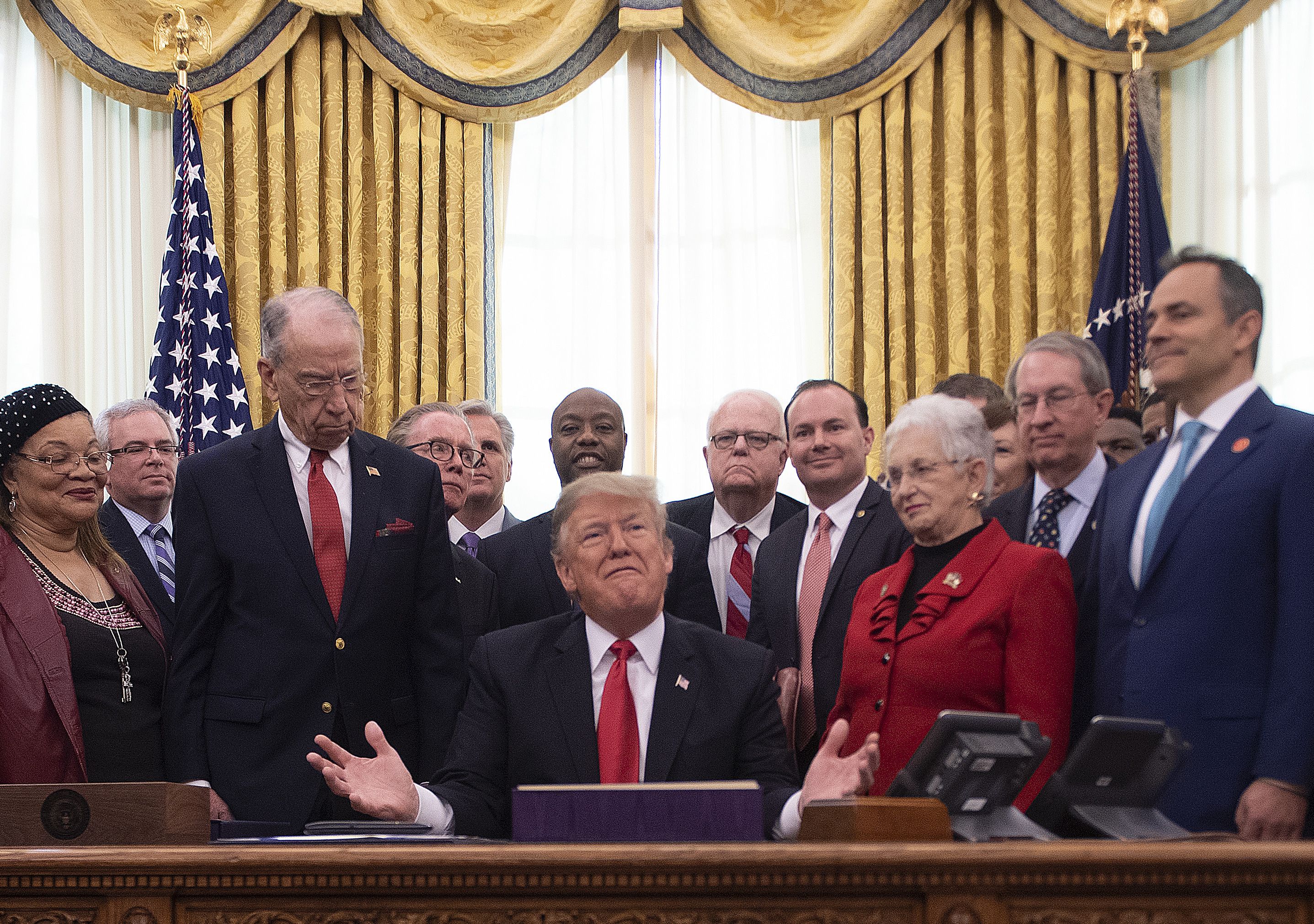
Mr Trump’s intentionally provocative rhetoric should not distract from the real issues with sentencing and racist bias in the criminal justice system, she adds. Through organisations like CAN-DO and Families Against Mandatory Minimums, Ms Bannister has advocated for prison systems to move away from using lengthy mandatory or life sentences, punishments whose impact is often felt disproportionately by racial minorities and the poor.
“There’s plenty of people left in prison. That’s why I say there’s still a long way to go,” she said.
Many of her co-defendants from her drug case are still incarcerated on the same kind of charges that made her eligible for a revised sentence.
“The problem isn’t fixed,” she continued. “A lot of laws that they bring about make sense in some aspects, but in some aspects they don’t. If you pass a law and it becomes effective on that date, it should be retroactive. If it was wrong now, it was wrong back then.”
‘The last thing we should be doing’
The former president’s rhetoric comes in the middle of an overdose crisis that has killed more than 107,000 Americans in the year between September 2020 and September 2021, according to the US Centers for Disease Control and Prevention.
In September 2015, roughly 52,000 people died from overdoses in a similar timeframe.
It’s a crisis that Mr Trump and his Republican allies have tried to weaponise to their political advantage, on matters ranging from executions to immigration.
That surge in drug-related deaths accelerated with the proliferation of the synthetic opioid fentanyl, a complex phenomenon driven by drug manufacturers, the nation’s healthcare system and a growing market for powerful opioids.
Nearly two-thirds of all overdose deaths reported within that time involved synthetic opioids, including according to federal data, and many were preventable.
Republicans have amplified baseless law enforcement narratives that so much as touching illicit fentanyl could lead to an overdose, while blaming President Biden with campaign-fodder claims that his administration has opened the US-Mexico border to the flow of illegal drugs.
In reality, seizures of illicit fentanyl at the US-Mexico border have largely mirrored those during Mr Trump’s final year in office.
But Mr Trump has repeatedly blamed immigration policy for the overdose crisis and proliferation of fentanyl, comments that advocates have linked to his nationalist, anti-immigrant agenda.
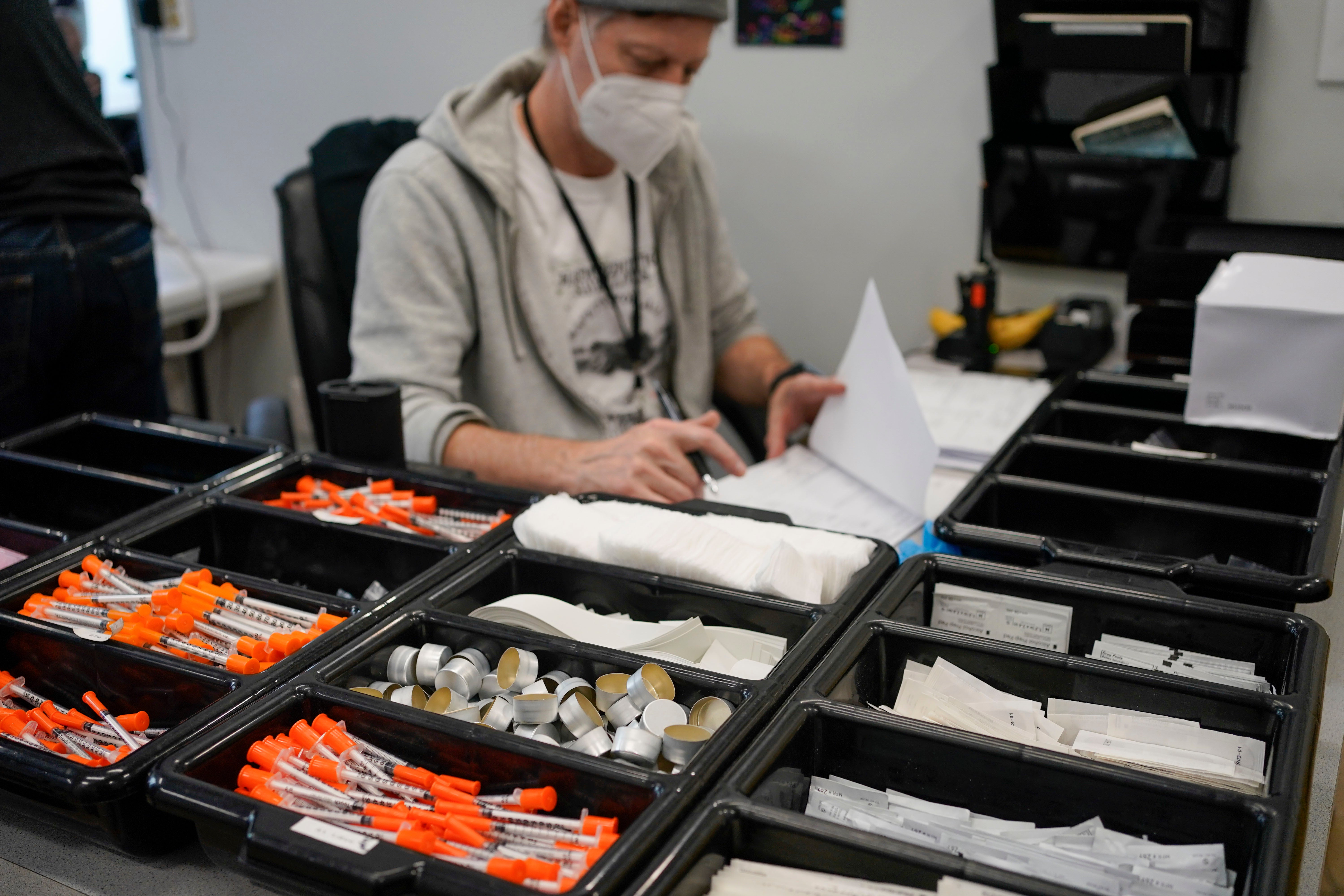
Drug policy reformers say his recent endorsements for the death penalty only exacerbate stigma and fear around drug use and the overdose crisis – with the threat of exceutions coming at the expense of serious discussions about actual solutions, such as drug treatment options.
“In the worst overdose crisis that this country has ever seen, the last thing we should be doing is stigmatizing people who use drugs, and that’s what this is doing,” according to Maritza Perez, director of the Office of Federal Affairs at the Drug Policy Alliance.
“It’s dog-whistle politics,” she told The Independent. “It promotes more racial strife and encourages racial disparities, not just in our criminal justice system, but in our society.”
Advocates have pushed for governments to expand harm reduction services – from syringe programmes to ramping up the availability of overdose-reversing medication and fentanyl testing strips – and support the decriminalisation of drugs, pointing to drug prohibition and severe criminal penalties for drug offenders as contributing factors in the crisis.
“This is a moment we need to engage in those conversations, but it’s not because of what Trump is saying,” Ms Perez told The Independent. “It’s because we’re in the midst of the deadliest overdose crisis our country has ever experienced, and I think we need to come to terms with the fact that it’s the failed drug war that led us to this moment, and that we need to reverse course, and what we’ve been doing obviously hasn’t been working.”





Bookmark popover
Removed from bookmarks